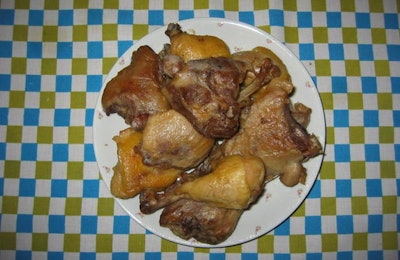
Members of the International Poultry Council (IPC) have adopted a unified strategy on sustainability goals and principles for the global poultry industry.
Approved by IPC members from 17 countries at the organizations recent conference in Banff, Alberta, the strategy lays out a long-sought roadmap for the poultry meat industry to follow to ensure its continued growth as the leading global provider of affordable protein.
The groundbreaking sustainability strategy is based on three pillars – economic, social and environmental, said Dr. Anne-Marie Neeteson of Aviagen, who chairs the IPC’s Working Group on Environment and Sustainability.
The working group, comprised of a broad cross-section of IPC country members and associate members from around the world, worked for more than a year on developing the strategy. Discussion began in earnest at the IPC conference in Lisbon in late 2016.
“Our challenge was to come up with a strategy that encompasses the necessity of continued growth for the industry, while at the same time conforming to increasing environmental and social constraints,” Neeteson said. The strategy can be linked to the Sustainable Development Goals (SDG) established by the United Nations in 2015.
The IPC will work on linking the strategy to the SDG over the next several months, Neeteson said.
The environmental pillar
In the environmental pillar, the goal of the strategy is for all stakeholders to minimize the impact of poultry production on the environment through enhanced efficiencies and improvements in breeding, feed production, waste management, emissions, husbandry, water usage and supply-chain distribution, without compromising animal health and welfare.
The social pillar
The social pillar of the strategy focuses broadly on food safety, food security, and animal health and welfare. The goal is to ensure access to safe and adequate supplies of poultry meat to feed a growing global population while also reducing foodborne pathogens like salmonella and campylobacter.
The economic pillar
The goal of the economic pillar is for poultry companies, producers and allied industries to grow and expand in a sustainable manner while adhering to the principles of food security and improved human nutrition.
“Sustainability is often discussed but seldom defined, because it requires such a delicate balance,” said IPC President Jim Sumner, who also serves as president of the USA Poultry & Egg Export Council. “Looking ahead, our industry realizes it must be able to continue its robust growth to feed a growing world. Even though poultry is already the most environmentally sustainable and efficiently produced animal protein, we must stay ahead of the game to meet the challenges before us, and this three-pronged strategy should help us do that.”
The IPC was organized 12 years ago by leading poultry-producing countries to determine areas of common interest and develop policies for the overall betterment of the global industry. The organization has 24 country members and 55 associate members representing more than 90 percent of the world’s poultry production. Marilia Rangel Campos of Brazil serves as the organization’s secretary general.

















